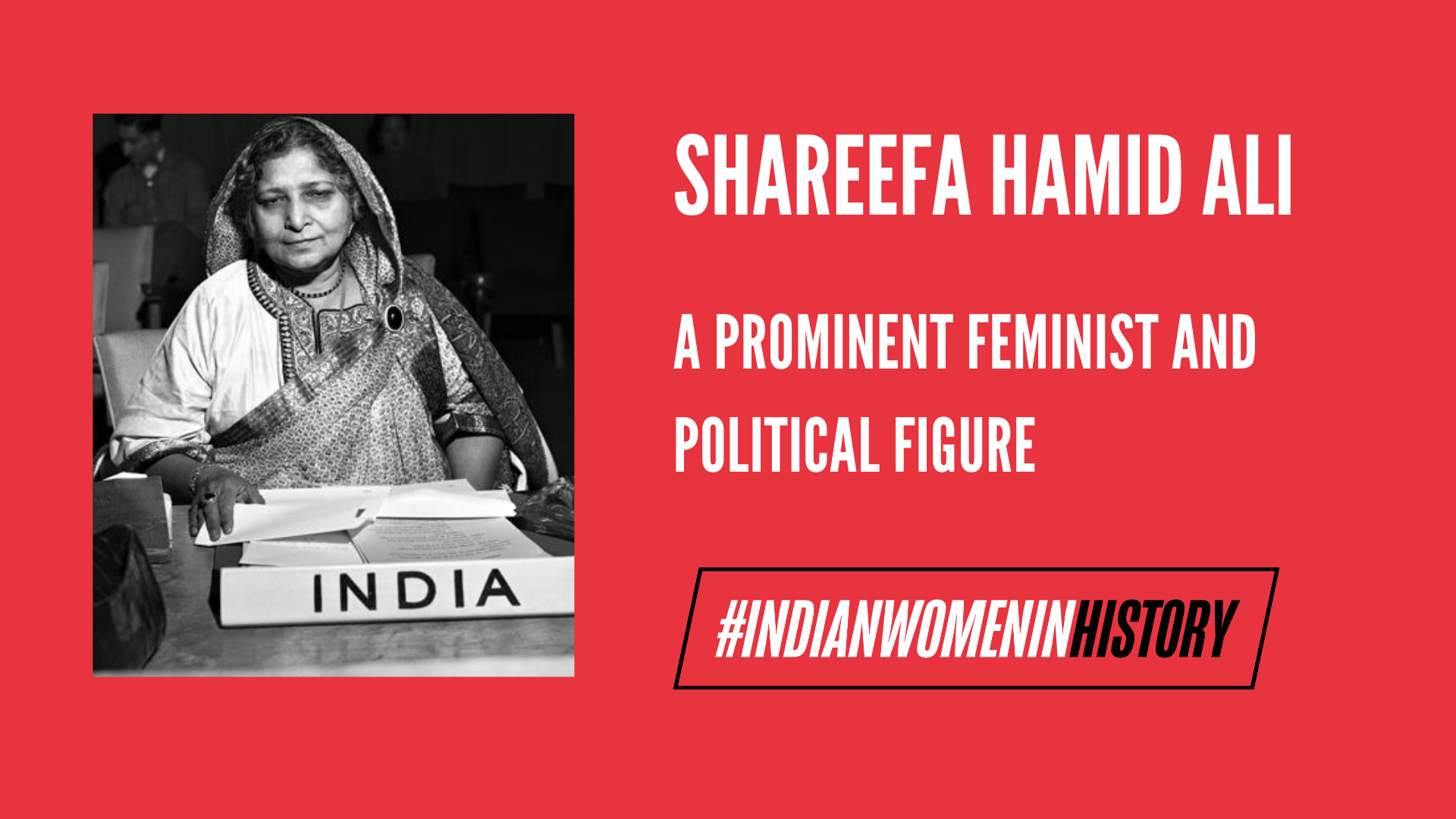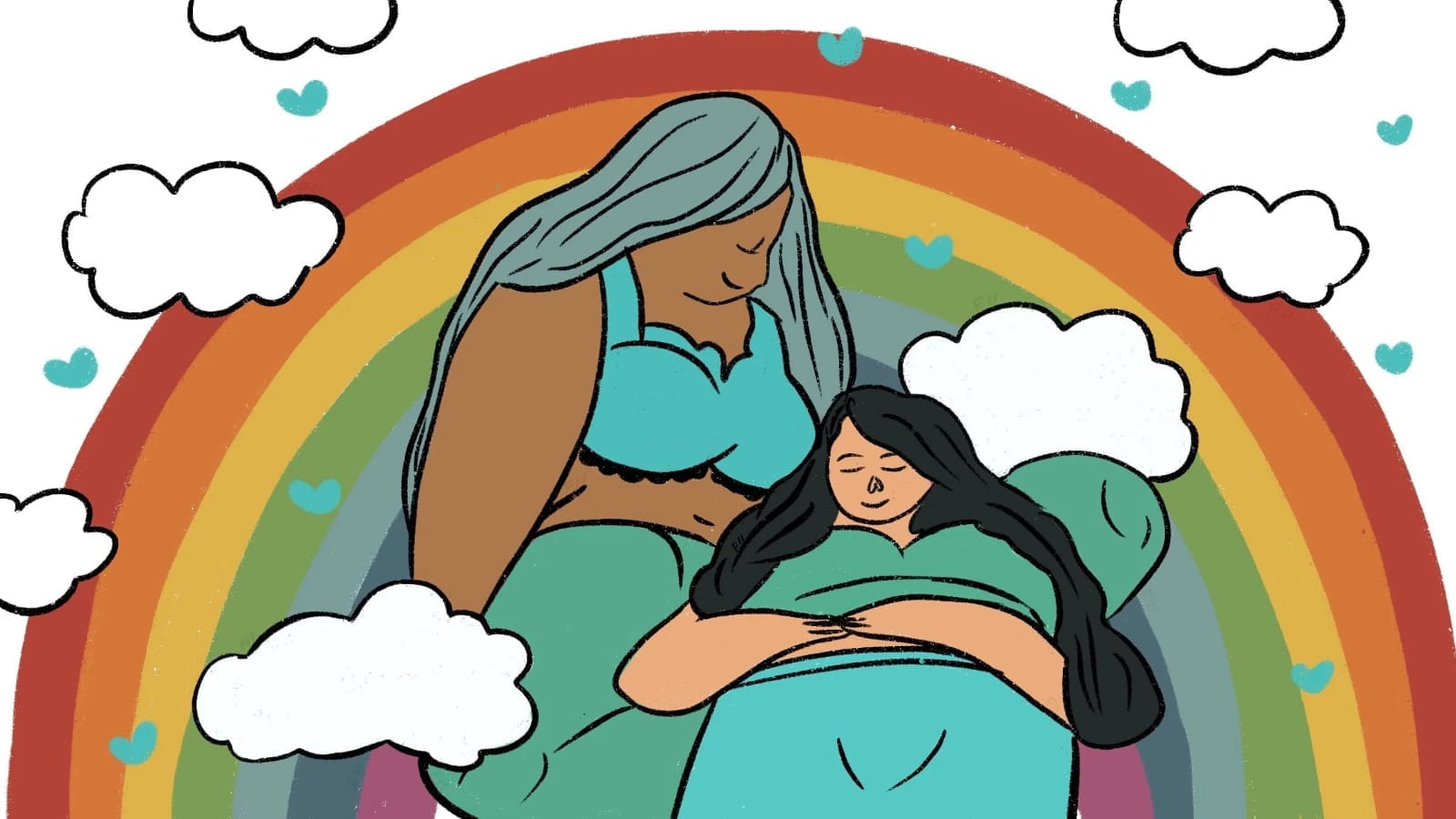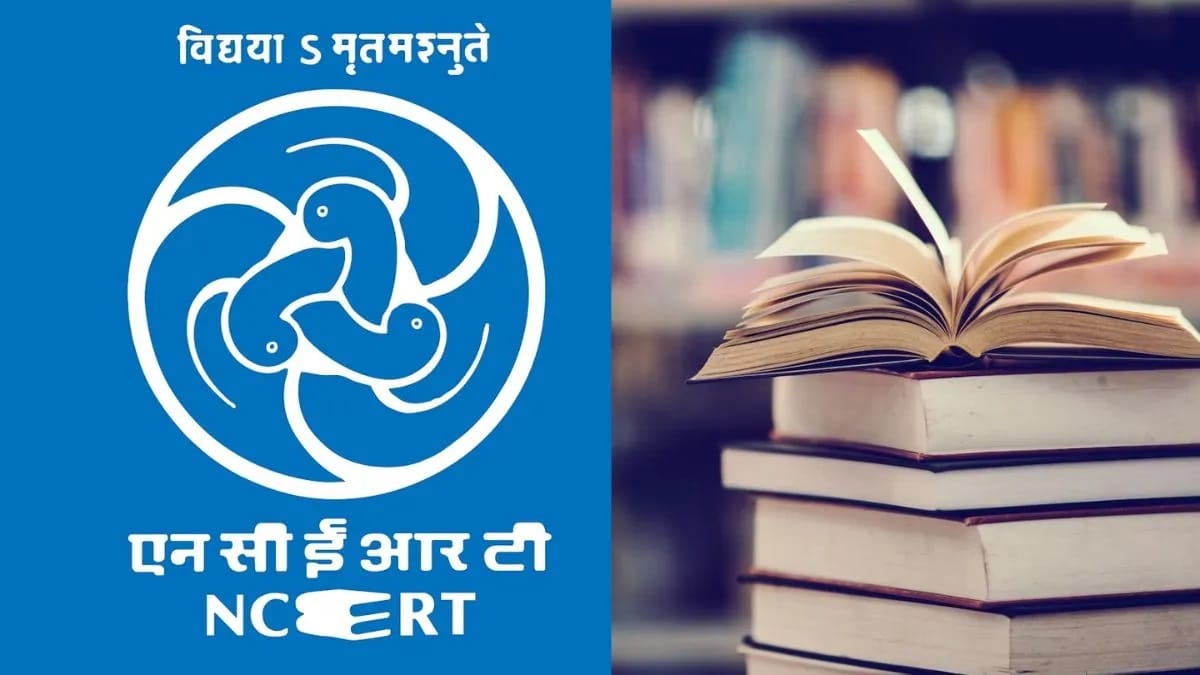“Each time a woman stands up for herself, without knowing it possibly, without claiming it, she stands up for all women.” — Maya Angelou
This quote captures the essence of Shareefa Hamid Ali work and activism. However, like many eminent women from Indian history, her work too has been neglected and her name was omitted from the social science textbooks. Her work spans from heading the All India Women’s Conference to then going ahead and representing the country at international committees. She has done exemplary work in the field of feminism and to improve the status of women across strata of society, yet unfortunately her name remains unscathed amidst socio-political discussions.
Durgabai Deshmukh, a freedom fighter, lawyer and activist, and Savitribai Phule, who is now seen as a pioneer of Indian feminism, are two women who laid the path for women’s rights in Indian history. But for years, their contributions too, in the area of girls’ educations and fighting Brahminical patriarchy were overlooked. Illustrious women heroes of the past are till date not acknowledged for their role in forming society. Today’s youth is trying to bring to light the works of the women who have shaped the nation and been a vital part our history, yet Begum Hamid Ali, is still not as renowned as she deserves to be.
In 1907, Shareefa Hamid Ali attended a session of the Indian National Congress, which further piqued her interest in politics and the Indian national movement. Being a caring and determined soul, she sought to uplift the lower castes and helped improve their lives through better access to health and education, distinct from the Brahminical notions prevalent in society at that time.
Early Life
Early in life, due to being brought up in a progressive household, Shareefa Hamid Ali enjoyed relatively more priviledge. Her mother (and she herself too) gave up the practice of purdah, which is stereotypically associated with Muslim women. Due to her upbringing, she was a broadminded liberal who was determined to bring about revolutionary changes to lives of those women who were oppressed by society’s bigotry and bring about legal reforms to enhance their livelihoods.
At a time when women were shunned aside and their voices hushed, she was always forefront in the fight for justice and was a voice for Muslim women nationwide. Most women of that era were scorned upon and disregarded, yet here was an individual rising against the prejudiced notions of the world, destroying the stereotypes in people’s mindsets and building her own path.
Also read: Nilima Ghose: First Indian Female Track Athlete To Compete At The Olympics | #IndianWomenInHistory
Her Work and Contribution
In 1907, Shareefa Hamid Ali attended a session of the Indian National Congress, which further piqued her interest in politics and the Indian national movement. Being a caring and determined soul, she sought to uplift the lower castes and helped improve their lives through better access to health and education, distinct from the Brahminical notions prevalent in society at that time.
Education of the masses took an upsurge in the colonial era, but what hindered girls’ education was the system of child marriage, which may be banned today, but about a 100 years ago, it was a legal phenomenon. Begum Hamid Ali thus urged for the Sarda Act-which was to increase the age of marriage to 15 years for girls. The Child Marriage Restraint Act now has made the age of marriage 18 for girls and 21 for boys.
She was an influential part of the national movement and a part of the All India Women’s Conference, or AIWC (which to date continues to run and fight for children’s and women’s rights) in lieu of which she even went ahead to represent it in international waters. She was the Honorary Treasurer, Chairperson of the governing body, Vice President and President of the AIWC. Begum Hamid Ali was one of the three women at the Round Table Conference in 1933 where she was the voice for women and demanded universal adult franchise, i.e. equal political rights for all, irrespective of gender.
At the age of 51, she even represented the All India Women’s Conference at the Istanbul Congress of the International Alliance of Women and at 54 she took part in the Congress of the Women’s International League for Peace and Freedom at Lohacovice, Czechoslovakia. The United Nations Commission for the Status of Women, which aims to create an egalitarian society with respect to the status of women was founded around 1946 and Shareefa Hamid Ali was one of the key persons involved in its establishment. Moreover, one needs to note that she achieved all of this in pre-independent day India – at a time when women had little, to no rights in the socio-cultural and political scenario.
Even though Shareefa Hamid Ali unfortunately she passed away in 1971, her legacy to fight the patriarchy needs to be upheld. In a world, where mainstream media continues to portray an array of stereotypes with regard to Muslim women, she stands as a symbol of liberation and an advocate and propagator for women’s rights, and deserves wider credibility for her ground-breaking work in the field of empowerment.
Remembering Shareefa
The crucial question that crops up is that why is it, that despite her unforgettable involvement in the ongoing fight for basic rights, her name isn’t one of those which pops into our minds? If one attempts to analyse this, they will realize that it is not our fault, but rather a product of the way we have been conditioned by society. Just like how women are under-represented in media, they are missing from the written text available as well. People, media and books continue to ignore the influence women have had in shaping the world we live and breathe today.
If one scrapes through the layers of history, one will find that the discipline is much more than let on. Women have been present and have played integral roles in previous wars, other chronicles of the past and saved the world, and yet have been ignored. This is just another example of why feminism is still required in today’s world. Apart from women still lacking the most minimal rights across the globe, even the heroes of the past, who fought so hard for the future of women-are rejected. The sexism of the world shines through even in the field of science, as women scientists too are vetoed out, and various other streams.
Also read: Janaki Thevar: The Woman Who Commanded Rani Jhansi Regiment Of INA | #IndianWomenInHistory
Even though Shareefa Hamid Ali unfortunately she passed away in 1971, her legacy to fight the patriarchy needs to be upheld. In a world, where mainstream media continues to portray an array of stereotypes with regard to Muslim women, she stands as a symbol of liberation and an advocate and propagator for women’s rights, and deserves wider credibility for her ground-breaking work in the field of empowerment.





Well written…?